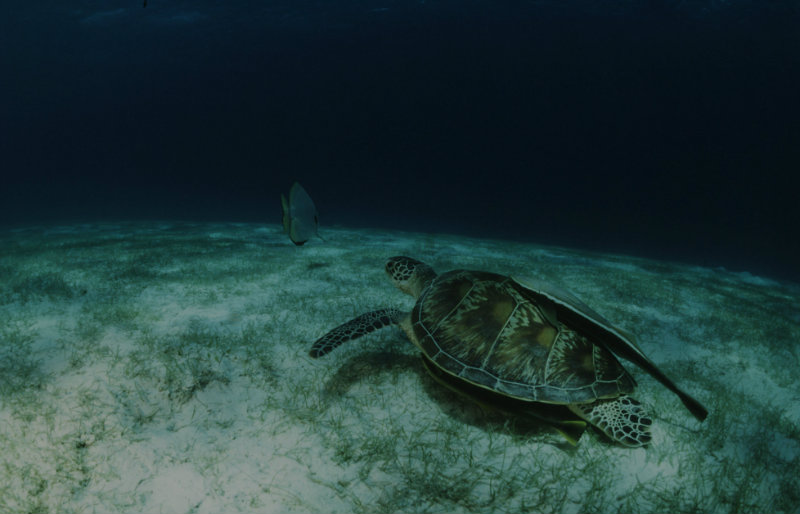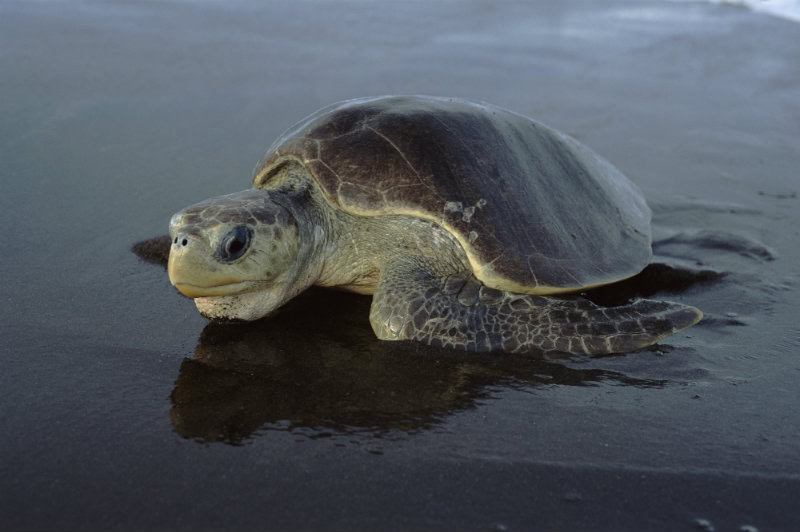LAHORE (Staff Report) – On the occasion of World Turtle Day, WWF-Pakistan stresses the need for an organised conservation strategy for turtles, to ensure that they are able to thrive in the existing environment.
Freshwater turtles in Pakistan, like leopards, are protected under Schedule III of Punjab and Khyber Pakhtunkhwa Wildlife Protection laws and have also been added to the revised schedule of the Wildlife Protection Act of Sindh.
However, in violation of these laws, turtles are poached across the country to be kept as a pet in aquariums and exported to East Asian countries for use in traditional medicine.
Pakistan is home to eight species of freshwater turtles, which are found throughout the Indus River system including its tributaries, irrigation canals, ponds and water reservoirs.
These turtles play an important role in keeping the aquatic ecosystem clean by feeding on dead organic material and fish. Scientists believe that removing freshwater turtles would cause the whole ecosystem to collapse.

Working with Wildlife Departments of the two Maritime Provinces i.e. Sindh and Balochistan, WWF has implemented a number of projects aiming to protect marine turtles, which have resulted in an increase in their population.
Turtle species of the world are facing serious threats to their likely survival due to environmental changes. The major problem with existing wild populations of turtles in the country is caused by illegal trade in body parts of softshell species on a commercial scale.
The scale of illegal trade can be gauged from the fact that in the year 2015 five consignments carrying 1,345 live freshwater turtles and 1.9 tonnes of their body parts (including dried meat and bones) were ceased by law enforcement agencies at various airports across the country bound for different East Asian countries. Pakistan Customs officials also ceased four consignments already this year and rescued about 700 black-spotted turtles from illegal wildlife traffickers.
To curb the menace of illegal trade and trafficking of freshwater turtles WWF-Pakistan as part of its project Combating Illegal Wildlife Trade by Establishing a National Monitoring Network that Benefits Local Communities and Environment, supported by USAID through its Small Grants and Ambassador’s Fund Program, is developing a national level action plan by involving relevant stakeholders to control illegal wildlife trade in the country.
The project is also building capacities of the relevant law enforcement agencies to monitor and control wildlife crimes through trainings and the provision of the latest technologies. WWF-Pakistan plans to initiate an awareness campaign at every important entry and exit point of the country in collaboration with Civil Aviation Authority.
WWF-Pakistan also conducted an undercover market study in 26 cities of Pakistan, in which it was discovered that all markets were dealing in the illegal trade of protected species including turtles.














